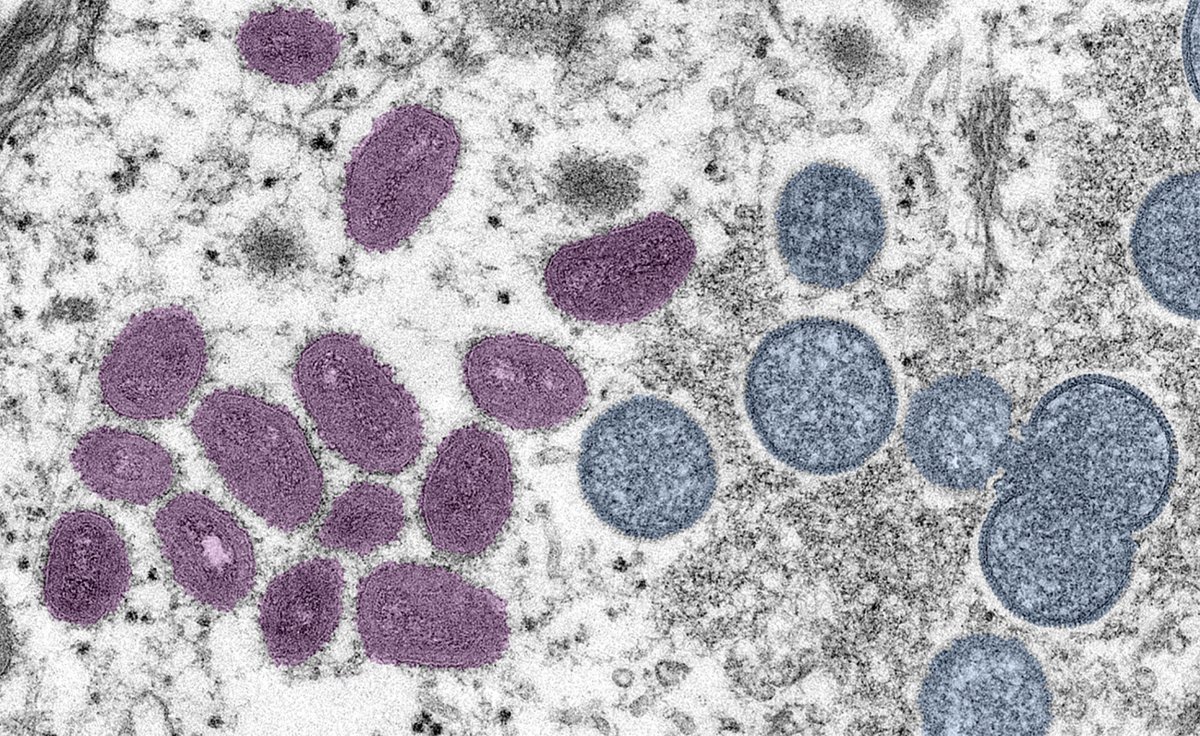The World Health Organization (WHO) has confirmed that a meeting will take place on Thursday to determine whether monkeypox is an emergency of international concern.
In recent weeks, more than 1,600 monkeypox cases have spread across 39 countries, according to WHO data.
Before this outbreak, monkeypox was only ever seen in areas of central and western Africa. The virus is not thought to be overly dangerous, however pregnant women and children may be at risk.
While no deaths have been reported in newly affected countries, 72 deaths have been recorded from previous outbreaks.

The virus is not thought to be as transmissible as other airborne viruses, such as COVID-19. Monkeypox is mainly transmitted through close, direct contact. Those infected with the virus will often break out in lesions—directly touching these blisters is thought to be the main form of transmission.
However, it appears to be spreading more rapidly than ever before, and scientists suspect it may be transmitting through different routes, although this is still being researched.
On June 23, the International Health Regulations Emergency Committee will meet to discuss this rapidly spreading virus, and whether it must be deemed a Public Health Emergency of International Concern (PHEIC).
So if it does, what could it mean?
What Is a Public Health Emergency of International Concern?
A PHEIC is a formal declaration by the WHO. The WHO defines it as "an extraordinary event that may constitute a public health risk to other countries through international spread of disease and may require an international coordinated response."
It is only ever considered when a disease becomes "serious, sudden, unusual or unexpected."
If a disease is given PHEIC status, it requires an urgent response—the main purpose is to spur evidence-based action in preventing the risk to the wider population. Countries have a legal obligation to respond and implement measures if PHEIC is declared.
The purpose of a PHEIC is also to raise awareness to the public.
WHO Director-General Tedros Adhanom Ghebreyesus told the United Nations that the "global outbreak of monkeypox is clearly unusual and concerning." Ghebreyesus believes that international coordination is needed to prevent spread of the virus.
WHO Deputy Director for Emergency Response Ibrahima Socé Fall also told the U.N. that the virus is spreading more rapidly throughout Europe, while in other countries the risk is considered moderate.
"We don't want to wait until the situation is out of control," Socé Fall said.
Since 2007, six diseases have been declared PHEIC—swine flu, polio, Ebola, Zika, Kivu Ebola and COVID-19.
WHO has been monitoring monkeypox as the spread continues and updating its guidance.
This includes advising infected individuals to isolate themselves from others in order to prevent the spread.
The WHO has also informed the public that although vaccinations are limited, plans for their distribution are being discussed.
The vaccination against monkeypox is the same as the smallpox vaccination—a virus of the same family that was eradicated in 1980. The vaccine helps prevent serious symptoms of monkeypox—however the vaccine is not currently in huge supply.
Dr. Vincent Hsu, epidemiologist and executive director of infection prevention for
AdventHealth, told Newsweek that monkeypox can be a "serious disease for some."
"The fatality rate in Africa has historically ranged from 1% to 10%. It is likely the disease will cause additional severe disease and death if it begins to affect people with weakened immune systems. Thus, if allowed to spread, this disease has potential to cause serious disease; the priority must be to stop transmission to others as soon as possible," Hsu said.
Hsu believes that monkeypox should be declared a public health emergency.
"The number of cases isn't the issue. Monkeypox will never cause the massive numbers of infections or death that COVID-19 has, but the window for us to keep this disease from becoming endemic in most of the world is rapidly closing," Hsu said. "It has already spread to over 40 countries and has the potential to cause severe disease and death if spread in certain populations such as those who are immunocompromised. Other populations in which severe disease could occur include pregnant women, the very young and the elderly. It appears that we have not yet learned our lessons from COVID-19. We must act now, and act like this is a public health emergency. Otherwise, it will be too late."
Update 6/22/22 10:21 a.m: This article was updated to include quotes from Dr. Vincent Hsu.
Uncommon Knowledge
Newsweek is committed to challenging conventional wisdom and finding connections in the search for common ground.
Newsweek is committed to challenging conventional wisdom and finding connections in the search for common ground.
About the writer
Robyn White is a Newsweek Nature Reporter based in London, UK. Her focus is reporting on wildlife, science and the ... Read more
To read how Newsweek uses AI as a newsroom tool, Click here.






